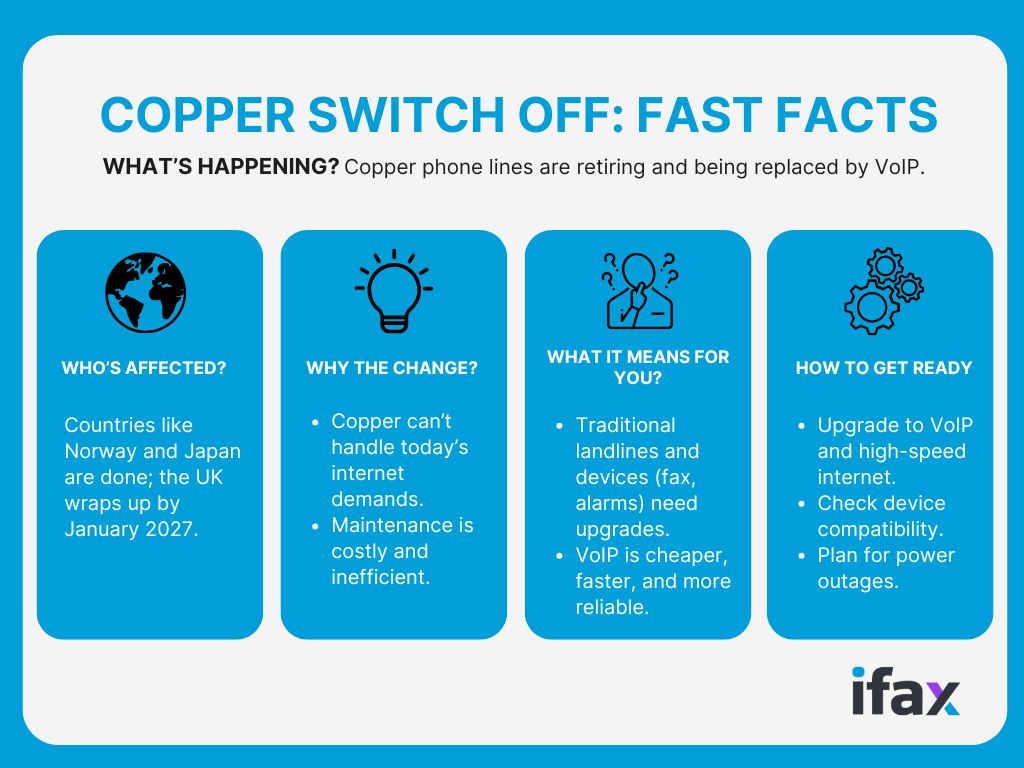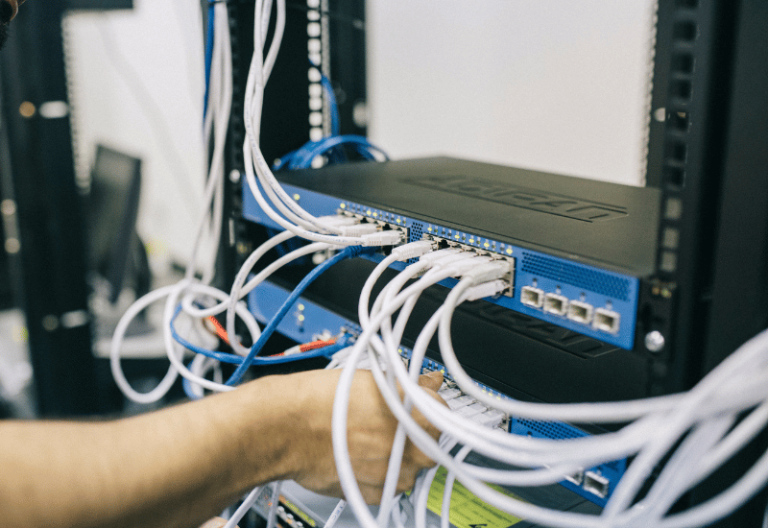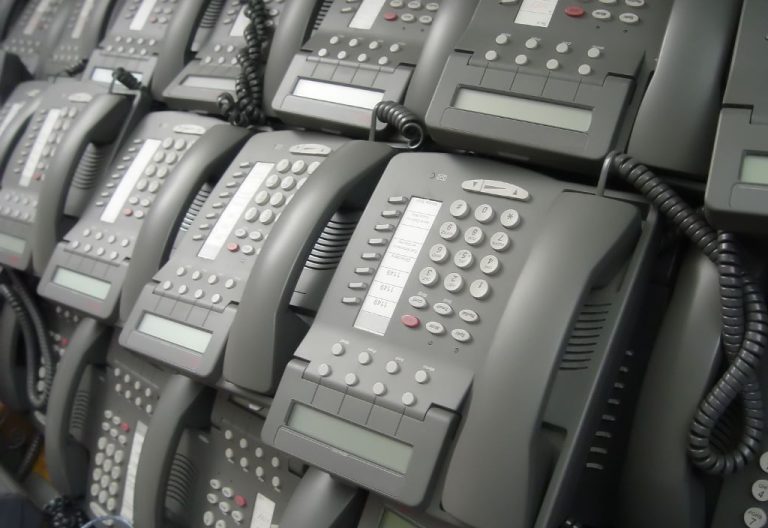The copper phone line is dying, and telecommunications companies worldwide are moving to far superior replacements. This copper switch off event affects everyone, and it’s almost complete.
What’s going to happen, and what does it mean for you? Keep reading to find out.
Table of Contents
What Is the Copper Switch Off?

The copper switch off is a global initiative in which telecommunications companies upgrade existing phone lines from old copper wires to newer systems. It involves phasing out PSTN (Public Switched Telephone Network) and ISDN (Integrated Service Digital Network), which work by using copper phone lines.
They’ll be replaced by VoIP (Voice Over Internet Protocol) phones.
When is the copper switch off happening?
Some countries have finished, while others are actively transitioning away from copper phone lines. Norway, Sweden, Germany, the Netherlands, Singapore, and Japan are among the countries that made the switch. In 2024, Spain’s telecommunications giant, Telefonica, completed the copper switch off.
Meanwhile, the UK, USA, Australia, New Zealand, and France are slowly but surely pulling the plug on the copper networks in their countries. BT copper switch off will be completed in the UK by January 2027.
Why Is The Copper Network Being Switched Off
For over 150 years since telegraph communication was invented, the same copper phone line has been used to meet voice and digital demands. These copper wires were upgraded to support advanced technology and the increasing number of people using the infrastructure.
Can I keep my copper phone line?
While possible, copper wires can’t cope with the rising demand. Billions of users access the internet daily, and the wires have hit their limit. They can’t deliver the speed and clarity the digital age demands.
Copper networks are also costly and inefficient to maintain. The maintenance cost is two to seven times higher than fiber network maintenance, but fault rates are five to ten times higher.
Retiring these analog phone lines is more economical and efficient. Plus, alternatives promise faster and clearer connections.

What Is The Impact on Individuals and Businesses?
With analog phone lines going away, you won’t be able to sign up for traditional landline contracts anymore. All existing lines must switch to VoIP. Those using ISDN, which relies on copper phone lines to access the internet, will also have to migrate to fiber optic cables. This will impact systems like traditional CCTVs, door-entry systems, and fax machines.
You can keep the same phone numbers or port them if you change providers. Will landline features like call waiting, call barring, etc. still work? Yes, and analog handsets are still usable as long as they’re plugged into a digital-capable adapter.
Will copper switch-off affect businesses?
The copper network shutdown will significantly impact business operations, disrupting legacy systems relying on copper-based phone lines. Security systems and point-of-sale (POS) terminals will be affected. The same goes for traditional fax machines that connect to analog phones.
Transitioning to VoIP systems will ensure business continuity and enhance communication speed and efficiency.
Before making the switch, it’s crucial to consider certain drawbacks when transitioning to VoIP like:
- Operational downtimes due to power outages – Consider setting up VoIP systems backed by a UPS or generator.
- Cyber security threats – Robust compliance with security and privacy protocols is a must.
- Cost of initial setup – Your business must invest in compatible hardware (office computers), software, and network infrastructure to ensure a seamless transition.
Considering the long-term benefits, transitioning from copper-based systems to VoIP can:
- Save costs—VoIP is less expensive because it uses your existing internet connection. Your service provider doesn’t have to invest in additional infrastructure.
- Enhances operational efficiency—Assigning additional phone numbers for calls and faxes won’t require extra cabling, making it easier for companies to scale.
- Improve communication—Make calls and send faxes on any device instead of being limited to wired analog handsets.
- Offer connection stability—Many of today’s reputable VoIP providers use multiple data centers and geo-redundant servers to ensure seamless connectivity.
- Increase productivity—VoIP systems offer advanced features like call forwarding, document faxing, automatic rerouting, and CRM integrations.

Alternatives to Copper Infrastructure
Wireless technologies and fiber optics are the most commonly used alternatives to copper infrastructure.
Wireless Technologies
Wireless technologies power mobile networks and VoIP phones, transmitting data using radio frequencies or microwave signals and without physical cables. This option is ideal for remote and inaccessible areas where building physical infrastructure is costly.
Wireless infrastructure is also quick to scale and deploy since there are fewer upfront infrastructure costs. However, wireless frequencies are limited and can become congested in densely populated areas. They can be affected by other devices and face bigger cybersecurity threats.
Fiber Optic Networks
Fiber optics use light to send data, providing greater data speeds and bandwidth. They can effortlessly cope with the massive bandwidth demand for video and voice data on the internet. It also experiences less signal loss over long distances.
Unlike copper broadband lines, fiber optic cables are made of glass or plastic, which doesn’t corrode over time. They need less maintenance, lowering telecommunication providers’ operational costs. They are also thinner and lighter than copper cables, making them easier to install and requiring less physical space.
Will fiber optics replace copper?
With copper phone lines being phased out, most telecommunications firms are using fiber optics as a replacement. Fiber optics are easily upgradable by replacing the equipment at the ends of the cables. There’s no need to replace the cables themselves, making fiber optics a future-proof solution.
What is a good replacement for the copper network?
VoIP phones are the best alternative to copper phone lines.
Besides the convenience of wireless connections, Voice over Internet Protocol (VoIP) systems offer enhanced call quality and easy integration with existing digital systems. For businesses, this means improved productivity with the ability to scale communications seamlessly, eliminating the limitations associated with having traditional copper-based phone lines.
Does your business need a fax solution that does not rely on traditional copper lines? iFax provides a comprehensive line of secure and regulatory-compliant Fax Over IP solutions that lets you fax from anywhere using any device, such as a phone or computer.
Request a demo of iFax for free.

How to Prepare for the Copper Switch Off
The copper switch off is a reality, and you have to be ready, so you’re not blindsided when copper phone lines disappear for good. To be prepared, consider taking the following steps:
- Identify affected devices such as landline telephones, fax machines, medical alert devices, and security systems that rely on copper phone lines.
- Upgrade to digital alternatives like VoIP for voice calls and fax.
- Ensure you have a reliable and high-speed broadband internet connection since digital communications will now be through the internet.
- Check the compatibility of ancillary equipment such as security alarms, smoke detectors, and digital networks. If you’re unsure, contact your equipment manufacturer for guidance.
- Reach out to your telecommunications provider to learn about their plans for copper switch off and the options available to you. You can schedule the installation of necessary equipment to transition properly before the deadline.
- Plan for power outages using backup solutions such as a UPS (uninterrupted power supply).
- Stay informed by monitoring updates from your service provider.
The copper switch off is an essential step toward modernization, and the advantages outweigh the inconvenience of upgrading. Be proactive in preparing for it to ensure a seamless transition without any challenges.







